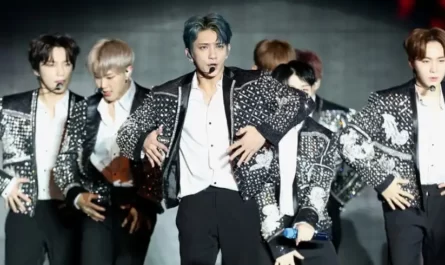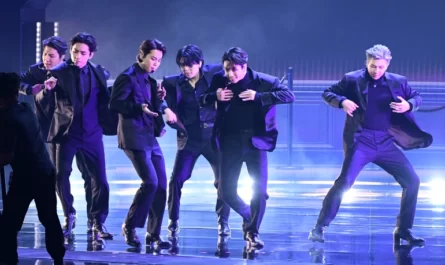Japanese netizens bombed the carpet like a kamikaze in the worldwide syndrome of group singing and group dancing. The target was ‘Super Tuna’ sung by BTS member Jin. The reason I made the problem was the content of the lyrics. It was pointed out that the word “East Sea” should be changed to “Sea of Japan.” Specifically, the lyrics are as follows: “My heart is pounding, where did my fish go? Where is my fish in the East Sea and West Sea?” Here, the East Sea was taken into account.
However, it was recorded in the West Sea and the East Sea, and not only the East Sea was mentioned. It is not a song about the territorial waters of the sea, and it is a song that contains only an individual’s feelings about fishing pleasantly. Like Handol’s ‘Arirang Alone,’ if it’s a song that exposes Dokdo to the front, it’s like the word ‘East Sea’ is jumping around. Despite such criticism, his popularity did not fade. Dancing to this song at an overseas kindergarten was a topic of discussion. In addition, hundreds of people played super tuna as a music video at the club and performed a group dance and a group dance.
Pinkfong Baby Shark, which ranked number 1 in YouTube views worldwide, and Jin’s Super Tuna (BTS) have many similarities. First of all, it is the character that made baby sharks very popular with children worldwide. Familiar animal characters such as sharks and tuna appear. It would be even better if it evoked a feeling of identification that could further elicit empathy or immersion. That’s why sharks have babies. It has an easy and fun sound. The content is less frightening than the baby shark. This is because scary sharks are hunting baby sharks. The image of tuna is more favorable than the shark. I didn’t forget the word “super” to match the shark. Tyrannosaurus is preferred over Velociraptor to be popular with children because of their size.
The advantage here over Baby Shark is that it has a simple choreography. Because of this, a challenge beyond cover dance is possible. Because the current generation is the SNS generation, it can be said that there is no objection to participating in this type of challenge, but somewhat active. Moreover, a simple cover dance is becoming an essential element for the spread. Here is also the pleasure of breaking taboos. Jin told me not to do the challenge, and I don’t want it either, but the more I block it, the more I want to break it. Moreover, the appearance of those who take issue increases the value even more. Moreover, if the reason is entirely irrational, it becomes only a supporting role or a villain that makes the main character shine even more.
The difference from Baby Shark is that a world-famous idol singer sang the song. In addition, there is storytelling of its own from the time this song was born until it received a response and support from the world. This song was made for the fan club ARMY, and most of the lyrics are based on conversations we had while fishing. And Jin said he wanted to go to class B or class C, but the people around him said he was now in the best rank, but even though there were criticisms that it would harm his reputation and image, Jin pushed forward as it was.
This aspect of Jin already shows his music art philosophy beyond formality and pretense. In particular, ‘Super Tuna’ is a tarot-style song. When it comes to trot, there is still a climate of ignorance, but as can be seen from the Lim Young-woong phenomenon, K-pop clearly shows that stars exist for the public. Therefore, in a situation where many people are working hard for the globalization of trot, Jin’s ‘super tuna’ is making a significant contribution more than anyone else. The attitude that does not distinguish between popular art and fine art is one of the spirits of the times. It is also characteristic of K-pop. We are faithful to what people want, but it is possible because we have an optimistic worldview to see the world. Even if Japan argues that it is not the Sea of Japan, in the end, their argument is ineffective. This is also the effect that K-contents, including K-pop, set out on a course to correct the truth as a cultural strategy. This is because they long for a world in which the people will eventually support and confess the truth when they tell the truth.











